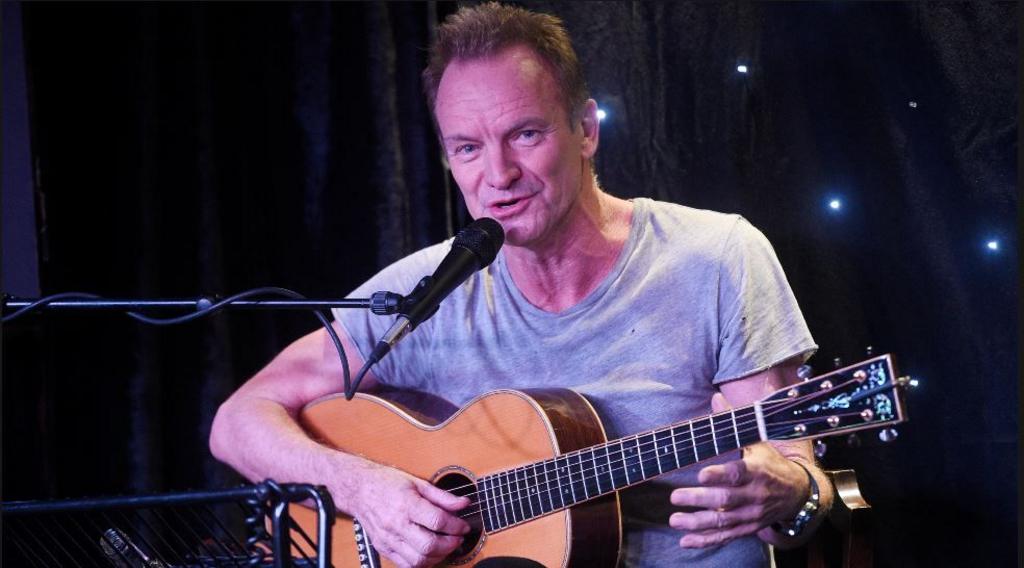Sting reflects on his life, expressing deep pride in his Tyneside roots. The Grammy-winning singer-songwriter, raised in Wallsend near Newcastle upon Tyne, acknowledges a profound connection to his birthplace.
However, he expresses concern regarding the North East’s historical neglect, characterizing it as “wilful neglect by successive governments for decades.”
Alongside a significant donation to a Gateshead arts institution, Sting highlights alarming statistics: “The statistics for child poverty in the area are discouraging,” he told the BBC.
His communication underscores a desire to give back to the region and culture that shaped him.
The former Police frontman is contributing an undisclosed sum to the Baltic Centre for Contemporary Art, often referred to as the North East’s Tate Modern.
Nearly fifty years have passed since The Police’s debut album, featuring hits like “Roxanne” and “Can’t Stand Losing You.”
These decades have brought him extraordinary success; over 100 million albums sold worldwide, both with The Police and as a solo artist.
In 2022, he reportedly sold his music catalog to Universal Music Group for $300 million (£222 million).
Yet, his childhood region faces stark challenges, with data from the End Child Poverty Coalition indicating that one-third of babies, children, and young people grow up in poverty.
Born Gordon Sumner in 1951 to a milkman and hairdresser, Sting recalls a North East with a thriving shipbuilding industry. His earliest memory, he’s stated, was “a massive ship at the end of my street, towering over the houses and blotting out the sun.”
However, following the industry’s decline, Sting – whose iconic yellow and black sweater earned him his stage name – points to years of governmental disregard, stating that despite “all the empty promises of ‘levelling up'”, the North East’s “significant historical contribution to national life, both industrial and cultural,” has been ignored.
In response, a government spokesperson stated their commitment to “fix the crisis we have inherited,” citing a £140m investment in seven deprived North East towns as part of a wider £1.5bn national investment, and asserting that they are “taking decisive action to tackle the scourge of child poverty.”
Sting remembers a culturally rich childhood despite his humble beginnings. “We didn’t have any books in the house,” he recounts via email, “but I was fortunate in the 60s to have had access to Wallsend library.”
He also highlights access to the People’s Theatre, the Laing Art Gallery, and his early musical experiences at the University Theatre.
“All of these institutions gave me a sense of the world beyond the shipyard where I was raised.”
Swan Hunter, Wallsend’s prominent shipyard, closed in 1993. Sting describes it as “a real and symbolic victim of Government neglect if not betrayal.”
He acknowledges the necessity of leaving the area to achieve his ambitions – relocating to London in 1977 and forming The Police – yet his connection to the North East remains profound.
As a young resident, he credits seeing Andrés Segovia perform with the Northern Sinfonia at Newcastle’s City Hall at age 14 with fostering his love of music.
A year later, witnessing Jimi Hendrix at the Club a’Gogo proved transformative. Brought to the UK by Newcastle-born Chas Chandler of The Animals, Hendrix’s performance left a lasting impact on the 15-year-old Sumner, who described lying in bed afterward with “my ears ringing and my world view significantly altered.”
In 2023, North Tyneside Council honored his cultural contributions and regional ties by granting him the Freedom of the Borough.
At 73, Sting reflects on the significance of cultural experiences for children in the North East. He feels a responsibility to give back, believing art nurtures “the nourishing of creative sparks that can lie dormant in even the poorest households if not encouraged by exposure to human potential.”
This leads him to support the Baltic, which, like many UK arts institutions, faces financial challenges amidst reduced public funding.
Opened in 2002 in a converted flour mill, the Baltic plays a vital role in Gateshead’s regeneration, showcasing contemporary art and engaging the community through initiatives like free breakfast clubs and community groups.
Sting’s donation initiates fundraising for a £10m Endowment Fund, securing free entry and community programs.
“The creative arts are of vital importance to the wellbeing of the community as a whole,” he emphasizes, viewing the Baltic as “a beacon of hope for regeneration.”
Currently touring with Sting 3.0, he will perform a gala event at the Baltic in October to raise further funds, with tickets priced at £10,000 per table.
His reflection on his roots is long-standing, evident in his concept album/musical, *The Last Ship*, inspired by Tyneside’s shipyards. While its initial reception was mixed, it has since toured and will have a Paris revival.
He aims to celebrate the North East’s innovative spirit, noting: “Geordies are not strangers to innovation, the steam turbine and the locomotive were developed on Tyneside. Britain’s success was largely built on these inventions.”

